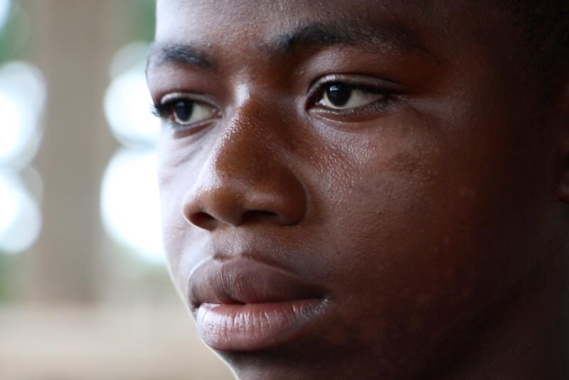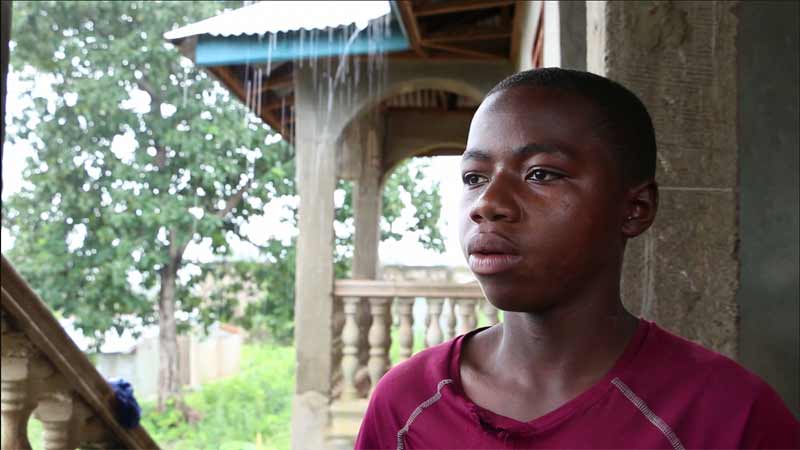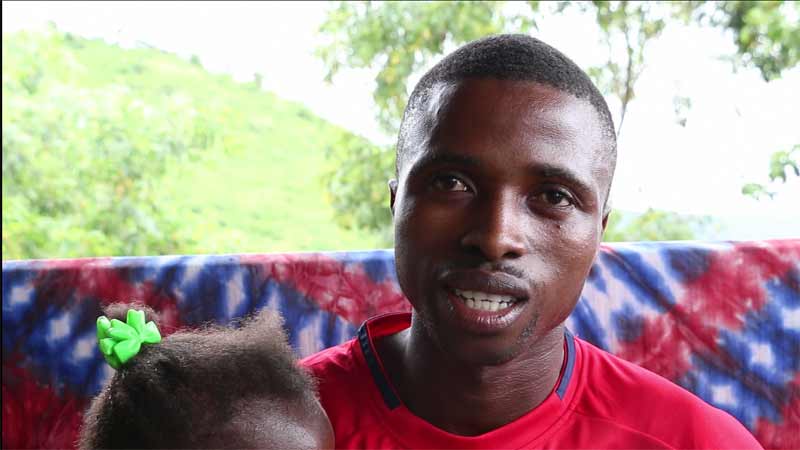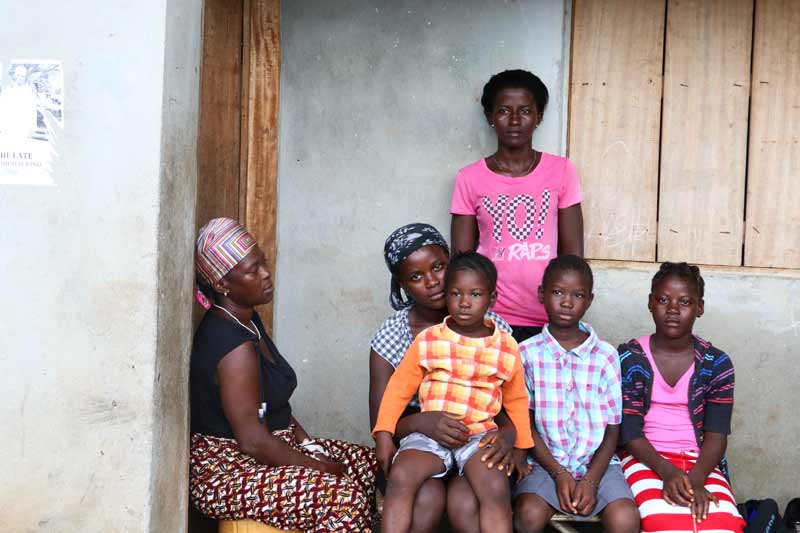Sierra Leone: Still Struggling to Recover from Ebola

During the 2014 Ebola epidemic in Sierra Leone, SOS Children’s Villages helped children who lost their parents, as well as extended family members who took in children that were left without care. Today, these children find themselves living in fragile families as communities struggle to recover from the epidemic.
Adama* likes Freetown better than his hometown Kono in Sierra Leone’s Eastern Province. “In the rural part, you will be at school and then you will be asked to drop out and get married,” he explains in the house where he lives with his sister Selma* and his uncle Lebah* on the outskirts of Freetown.

Adama stands on the terrace of his uncle’s house, where he now lives. Photo courtesy of Fabien Offner
From the terrace, he can see the ocean and the road along the green mountains. Today is another rainy day on the Freetown peninsula.
Adama and Selma*, 15 and 17, lost both their parents during the Ebola epidemic that killed nearly 4,000 people in Sierra Leone between May 2014 and March 2016. No one in Kono was able to take care of the children because of the epidemic’s impact on health and social services, along with the economy in general. In rural areas like Kono, many farmers could not work in the field and lost their harvest as a result.
An older sister of Adama and Selma decided to send the two children to Freetown to live with their Uncle Lebah, his wife and their daughter. But Lebah and his family were not able to meet the needs of Adama and Selma and sought help to care for the children.

Adama and Selma’s Uncle Lebah sits on the terrace of his home with his daughter. Photo courtesy of Fabien Offner
“It wasn’t easy to accept,” recalls Lebah, 27. “It was a very sad day for me, because I did not have enough money to take care of them. I took the children [to an Interim Care Centre] and asked what their plans were and how it would benefit the children.”
A new homecoming
The government of Sierra Leone, together with SOS Children’s Villages and local children’s organizations, established Interim Care Centres for children who had lost parental care during the epidemic. Adama and Selma were two of 135 children who found care at one of eight such centres across the country, supported by SOS Children’s Villages. All Interim Care Centres distributed food, clothing and hygiene goods to support surrounding communities.
Adama and Selma were amongst the children who had living extended family and were able to return to their uncle. “Even though I didn’t have enough money to take care of them, I tried all I could. I was breaking stones and doing other jobs. I’m a welder, but I don’t have a welding machine or a generator to work.”
Once back home with Lebah, Adama and Selma were supported by the SOS Children’s Villages’ Emergency Program. They received school supplies and their school fees were paid for. “I registered them for class, even though they had never been to school,” says Lebah. “They did very well. One of them took the first position in class; the other took second.”
Today the uncle is doing better in supporting his family, but he still does not have all the tools he needs to practice his work, breaking stones for a living.
Loss leaves family struggling
A few kilometres away from the home of Lebah, Adama and Selma is Aberdeen Creek, a Freetown neighbourhood where luxury hotels, big villas and private sports clubs face a dark lagoon. Next to this display of wealth is a small slum of two-roomed sheet metal shacks. Among the water puddles from the persistent rain and the tiny, narrow streets is the Bangoura family’s house.
Kadiatou*, seven, Mariam*, nine, and their 16-year-old sister Yelina* live here with two aunts.

The Bangoura Family. Photo courtesy of Fabien Offner
During the epidemic, SOS Children’s Villages helped the three sisters to find a new home after losing their parents to Ebola. At the time, the Family-Tracing and Reunification Program sought to connect children who had lost their biological parents or primary caregivers with extended family members. Their uncle agreed to welcome them into his family, but the house was under construction and they could not move in immediately. SOS Children’s Villages helped their uncle to finish the work so the girls could move in.
Their uncle died in December 2016, adding to the hardship of losing their parents. “We cannot compare this with the time before,” Yelina says with Kadiatou seated on her knees. “When our parents were alive, they did their best to make us happy. Now with our uncle’s death the situation has become very difficult.”
The family is struggling. The uncle’s widow does not have a fixed job. Like Lebah, the uncle of Adama and Selma, they often go to break stones to earn 50,000 Leones ($8.50 CAD) per bag. It can take days to fill one bag.
In Sierra Leone, the return to a “normal” life after Ebola also means the return to a different kind of daily struggle.
Canadians wishing to help are encourage to sponsor a child, sponsor a Village or make a one-time donation. Your support will help change the lives of orphaned, abandoned and other vulnerable children. Please help today.
*Names changed to protect the privacy of the children
